Supersaturated Oxygen (SSO2) Therapy in STEMI Treatments
Published: 06 December 2021
-
Views:
 9260
9260
-
Likes:
 7
7
-
Views:
 9260
9260
-
Likes:
 7
7
-
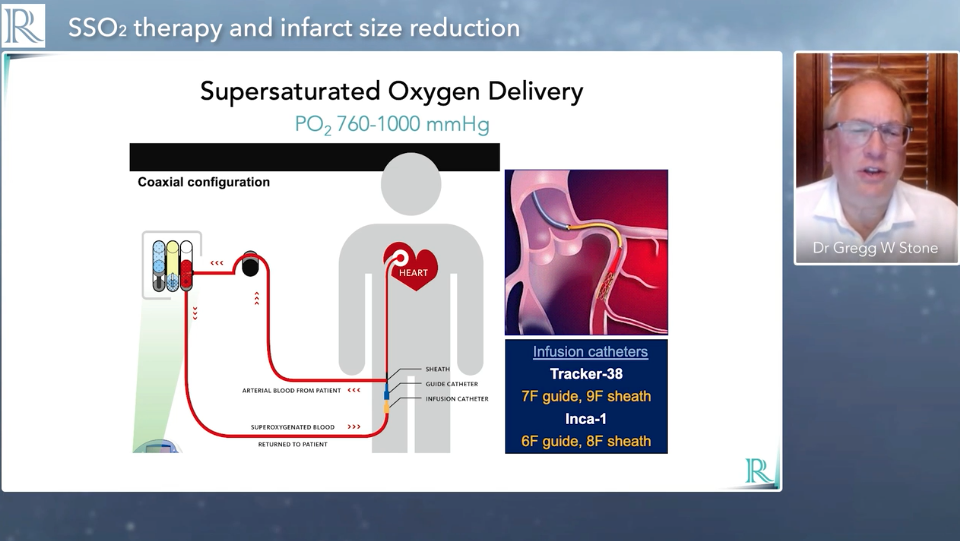 Up Next
Up Next -
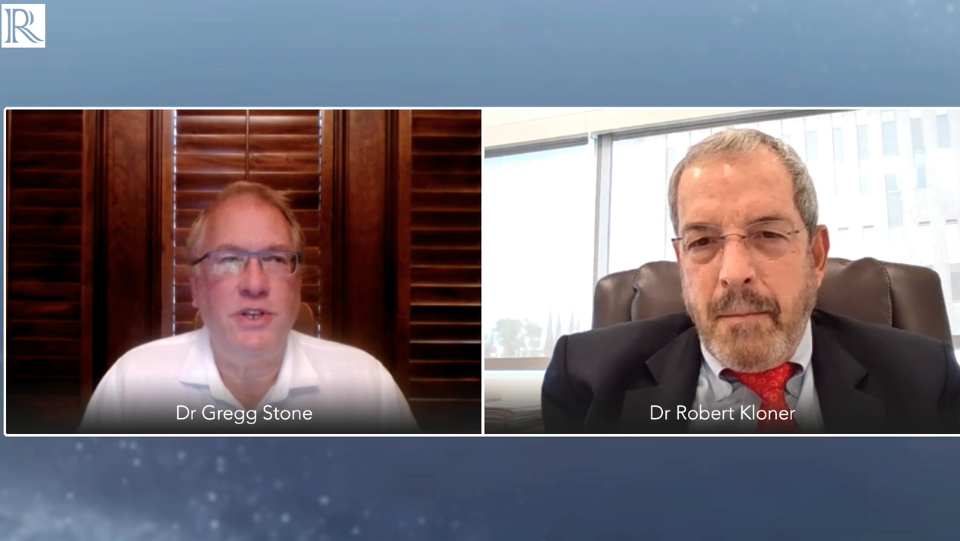 20m 59sPart 1 | Session 6 Questions and Answers
20m 59sPart 1 | Session 6 Questions and Answers
-
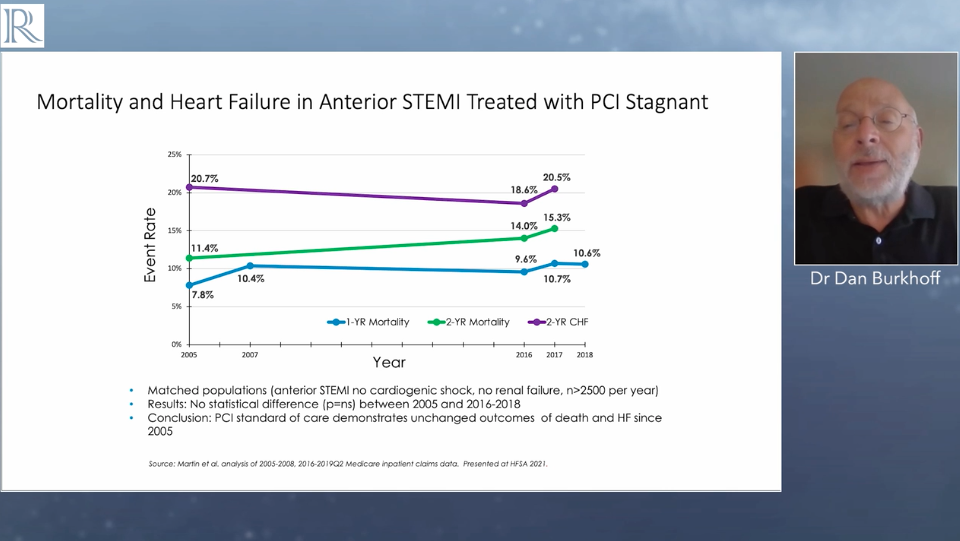 1m 4sPart 2 | Session 1 Current State of STEMI Care
1m 4sPart 2 | Session 1 Current State of STEMI Care -
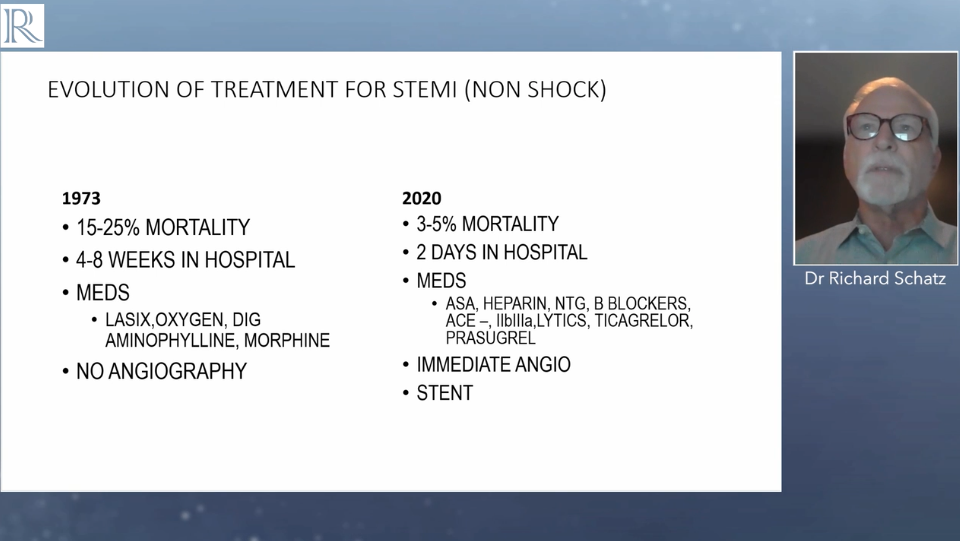 10m 41sPart 2 | Session 2 Evolution of STEMI Treatment
10m 41sPart 2 | Session 2 Evolution of STEMI Treatment -
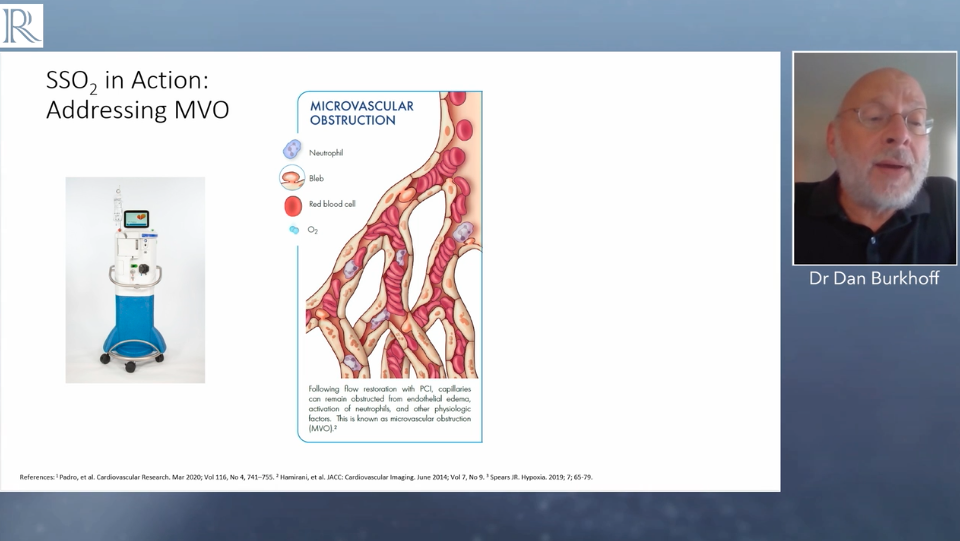 2m 44sPart 2 | Session 3 SSO2 Mechanism of Action
2m 44sPart 2 | Session 3 SSO2 Mechanism of Action -
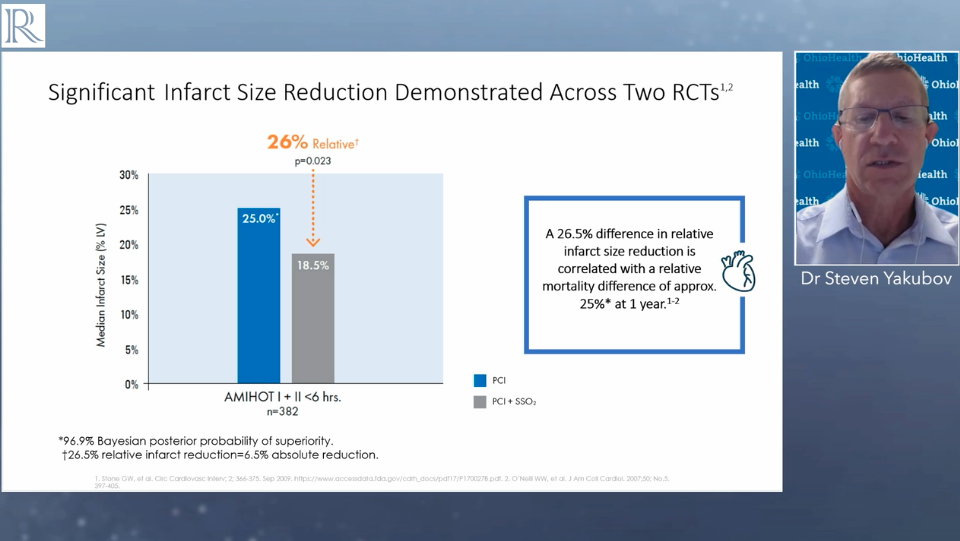 6m 46sPart 2 | Session 4 Clinical Results of SSO2 Therapy with Case Presentation
6m 46sPart 2 | Session 4 Clinical Results of SSO2 Therapy with Case Presentation -
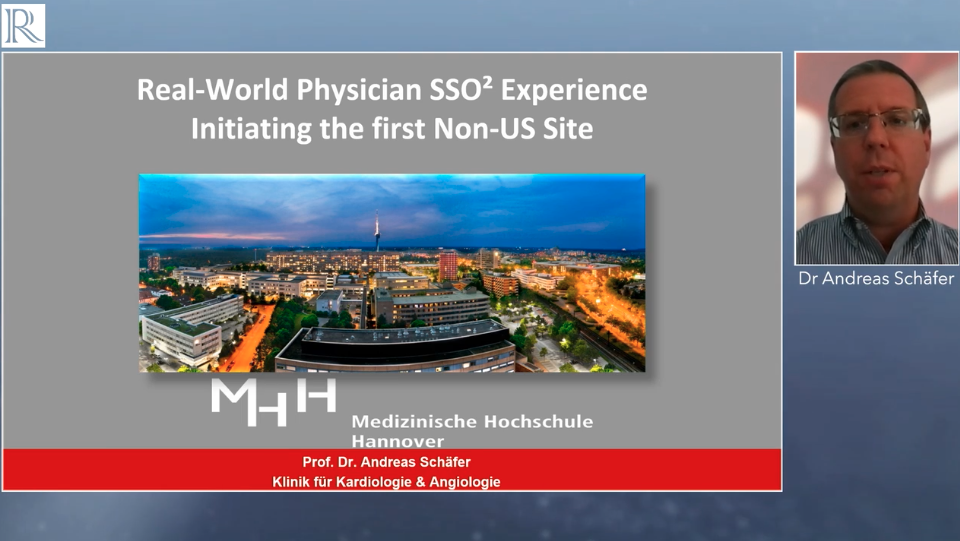 9m 1sPart 2 | Session 5 Case Presentation by Dr A Schäfer
9m 1sPart 2 | Session 5 Case Presentation by Dr A Schäfer -
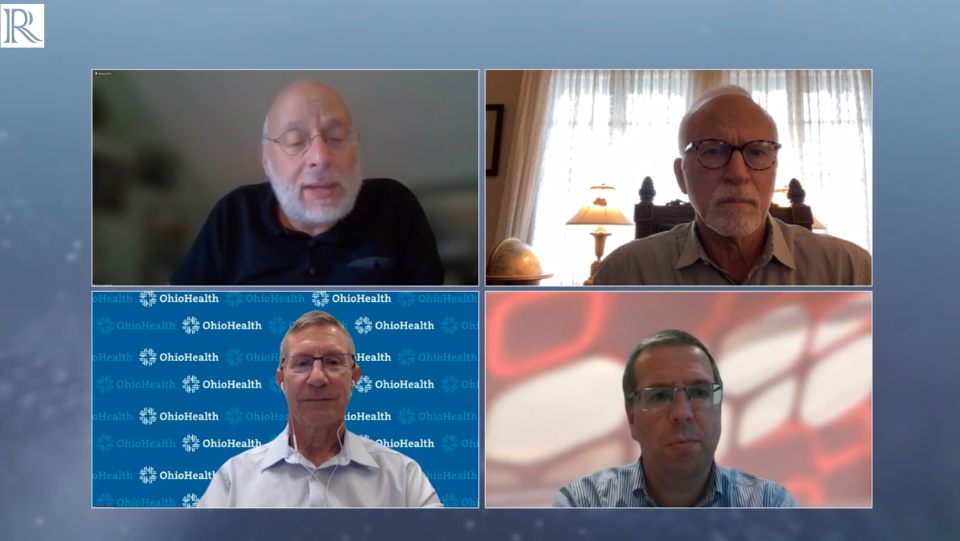 24m 36sPart 2 | Session 6 Questions and Answers
24m 36sPart 2 | Session 6 Questions and Answers
-
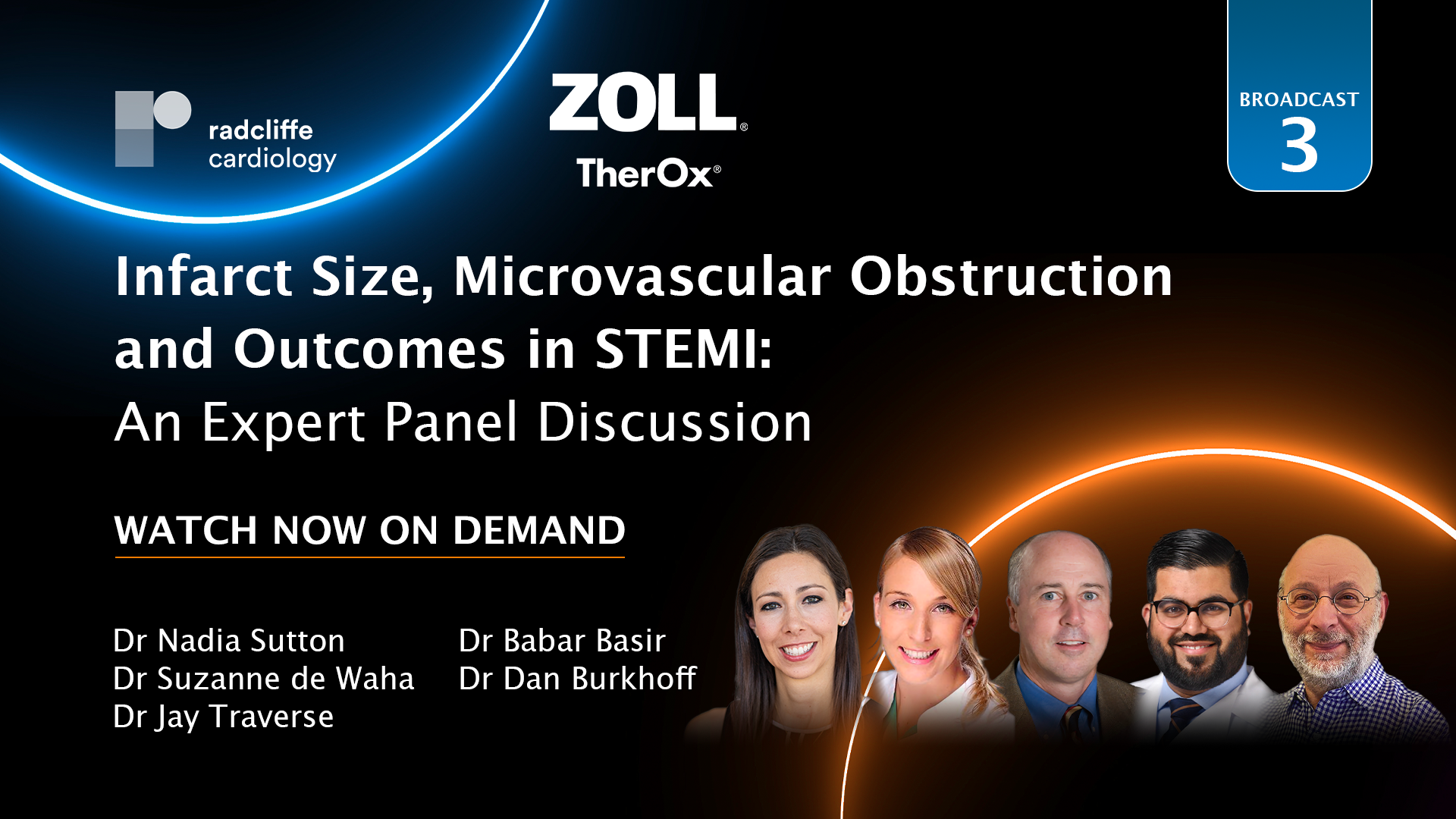 2m 49sPart 3 | Session 1 Introduction
2m 49sPart 3 | Session 1 Introduction -
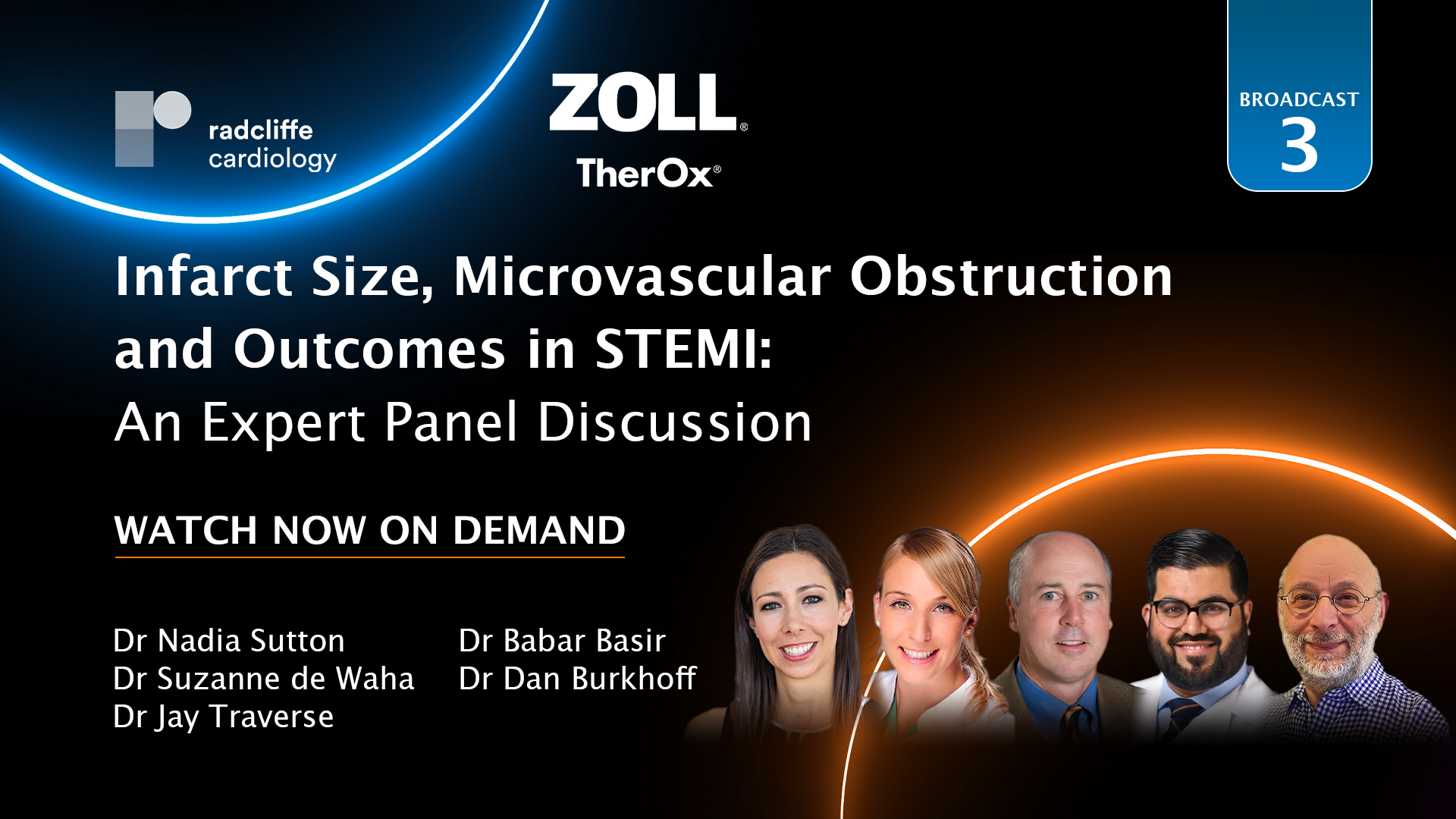 13m 25sPart 3 | Session 2 Overview of the Problem: Microvascular Obstruction and Infarct Size in STEMI
13m 25sPart 3 | Session 2 Overview of the Problem: Microvascular Obstruction and Infarct Size in STEMI -
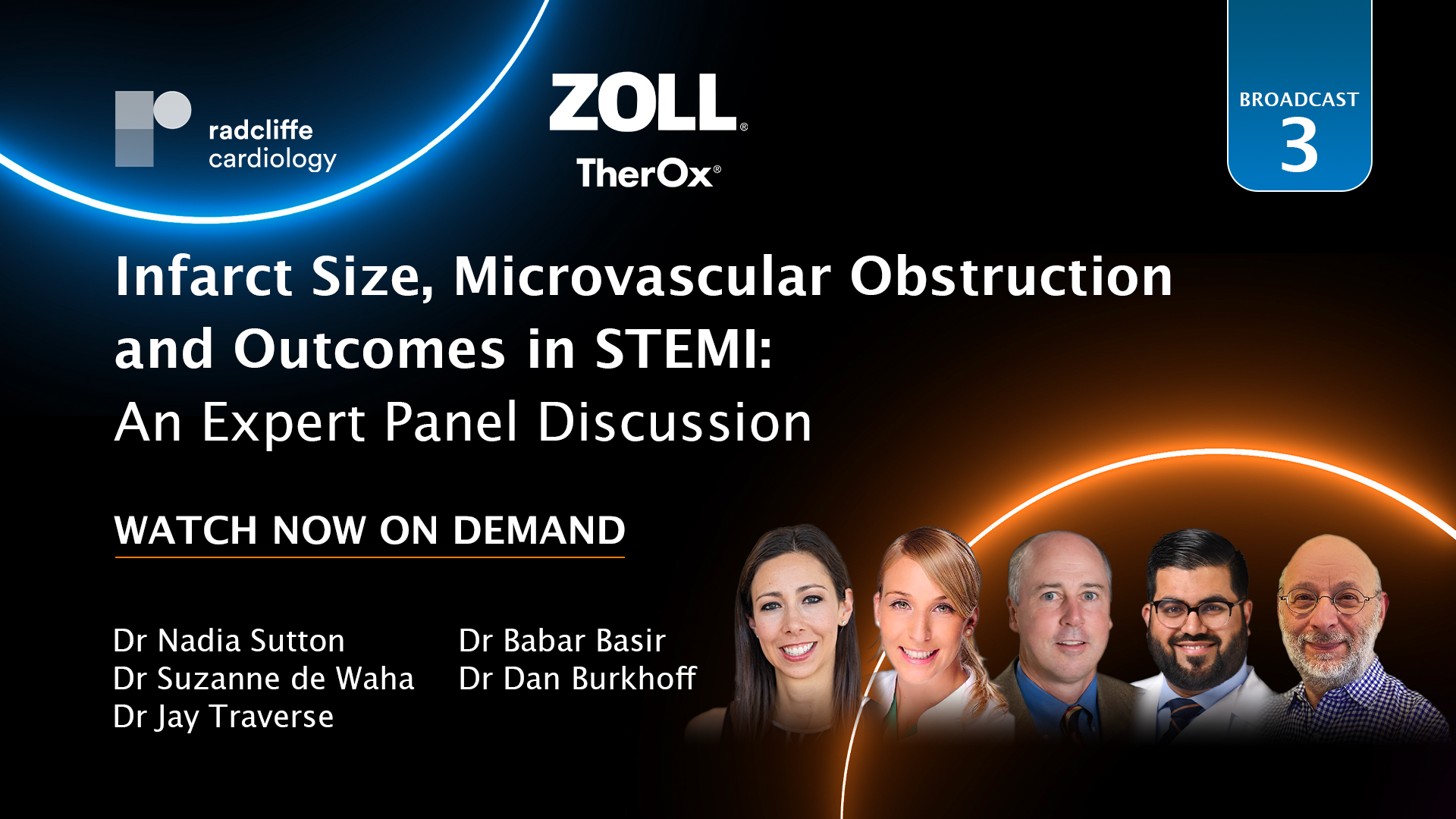 29mPart 3 | Session 3 Questions and Answers
29mPart 3 | Session 3 Questions and Answers
-
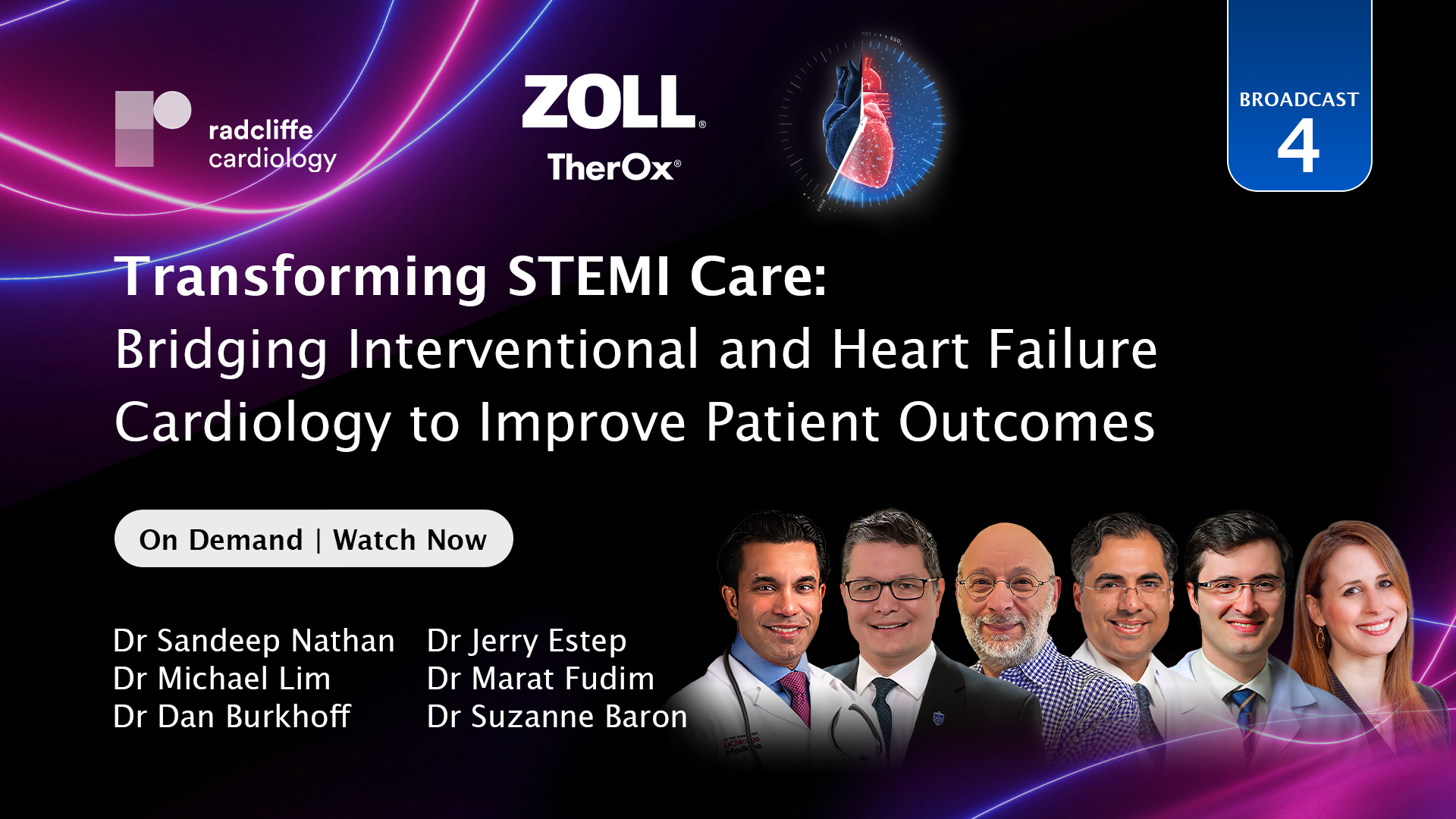 3m 38sPart 4 | Session 1 Introduction
3m 38sPart 4 | Session 1 Introduction -
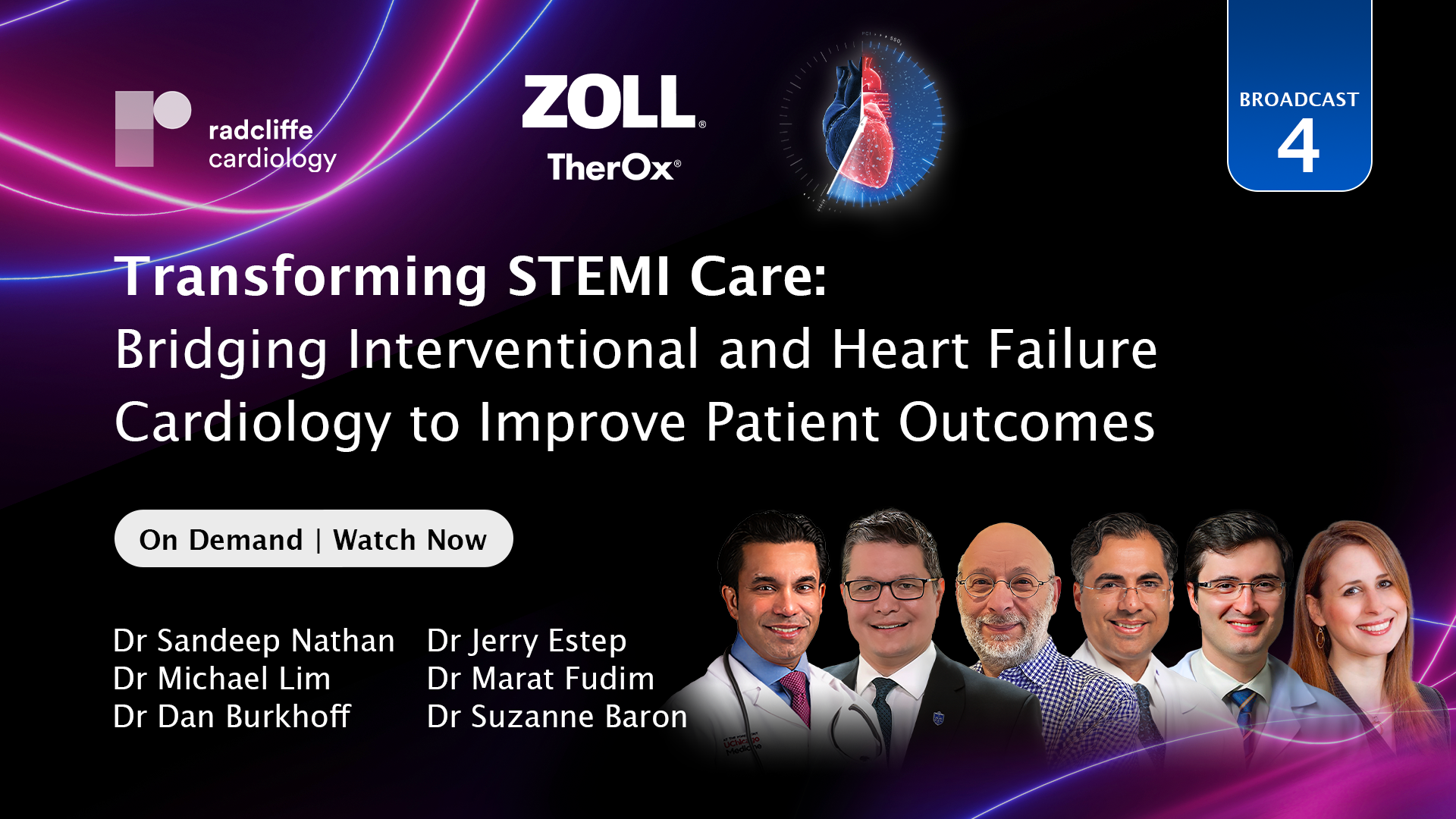 11m 1sPart 4 | Session 2 Heart Failure Epidemic in STEMI
11m 1sPart 4 | Session 2 Heart Failure Epidemic in STEMI -
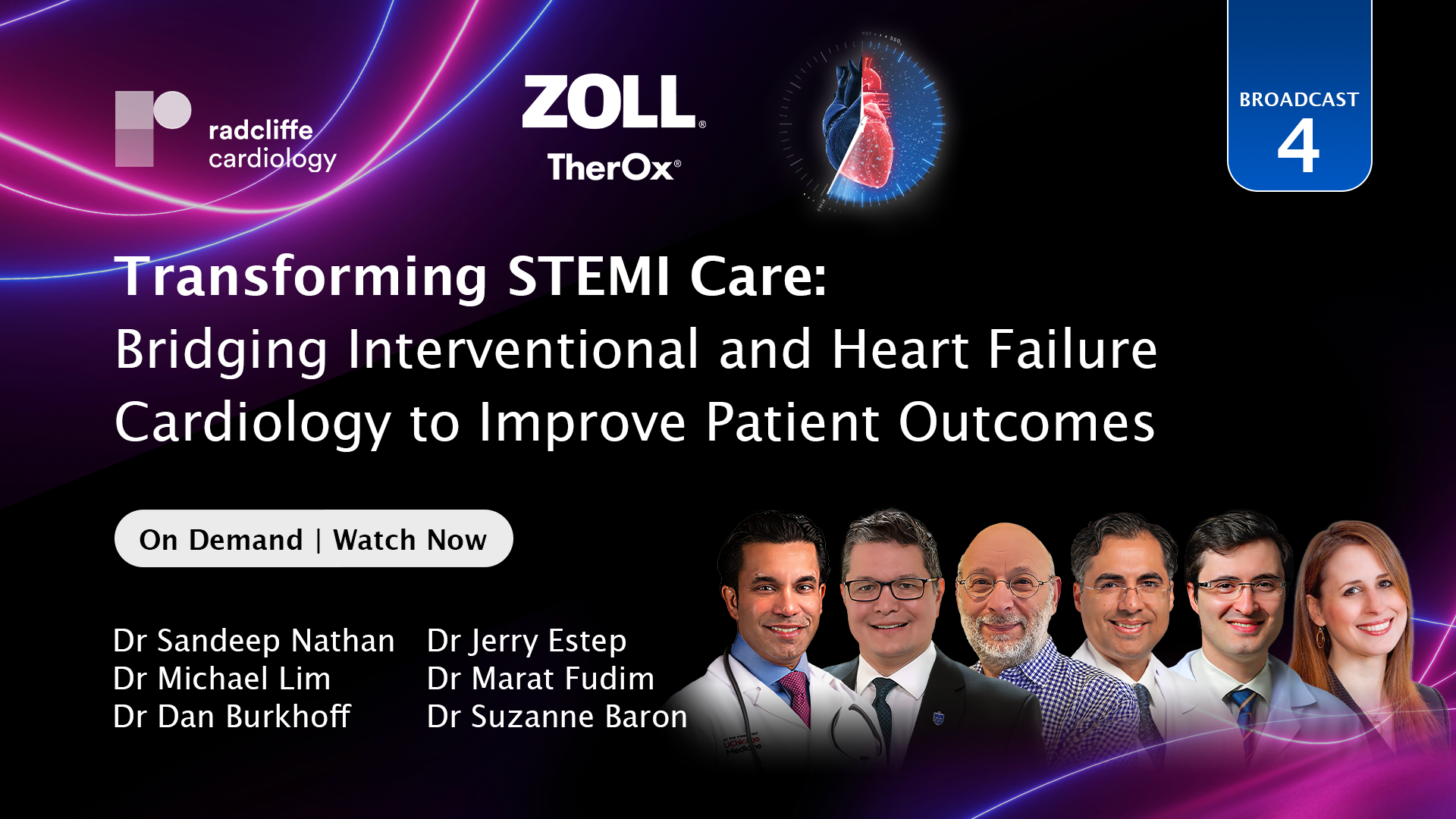 45m 2sPart 4 | Session 3 Fireside Chat
45m 2sPart 4 | Session 3 Fireside Chat
-
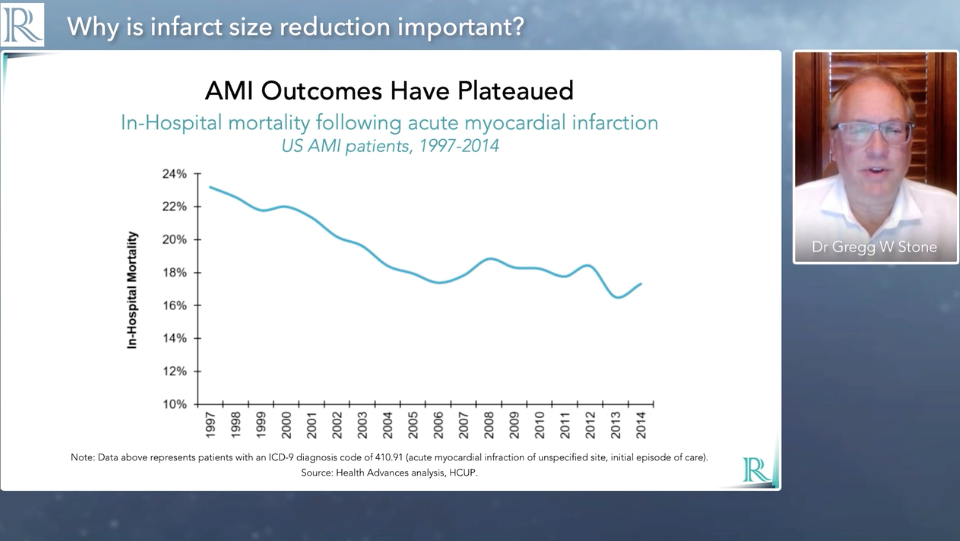 4m 32sPart 1 | Session 1 Why is Infarct Size Reduction Important Gregg Stone, Robert Kloner
4m 32sPart 1 | Session 1 Why is Infarct Size Reduction Important Gregg Stone, Robert Kloner
-
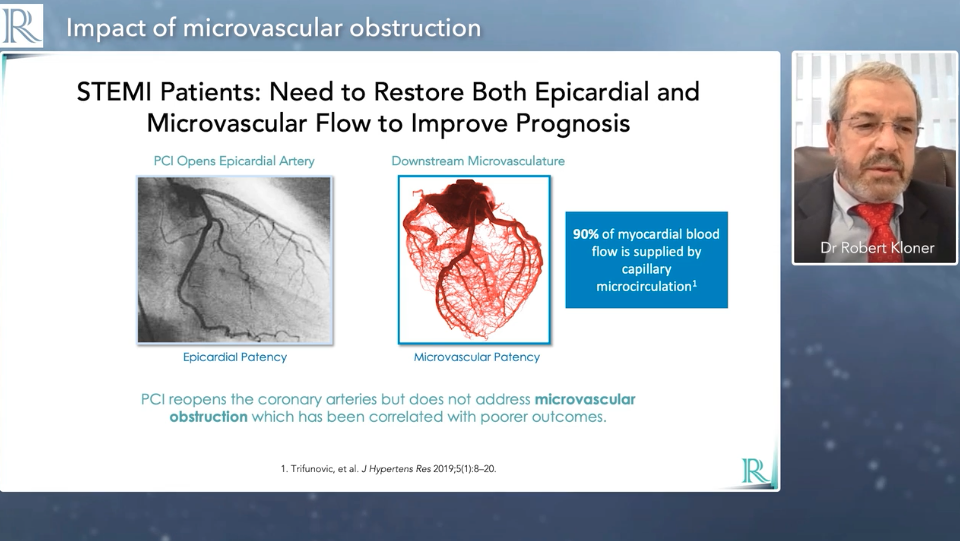 7m 22sPart 1 | Session 2 Impact of Microvascular Obstruction Robert Kloner, Gregg Stone
7m 22sPart 1 | Session 2 Impact of Microvascular Obstruction Robert Kloner, Gregg Stone
-
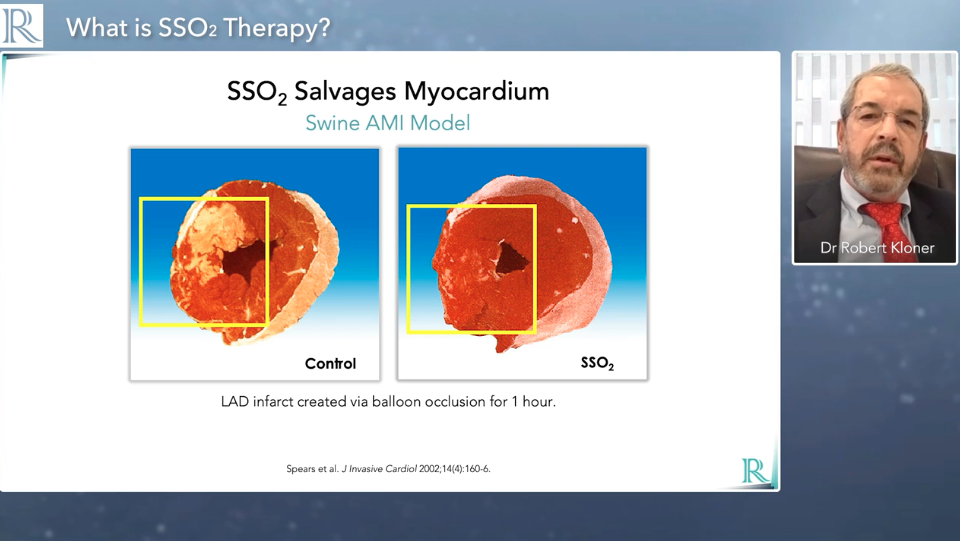 5m 51sPart 1 | Session 3 What is SSO2 Therapy Gregg Stone, Robert Kloner
5m 51sPart 1 | Session 3 What is SSO2 Therapy Gregg Stone, Robert Kloner
-
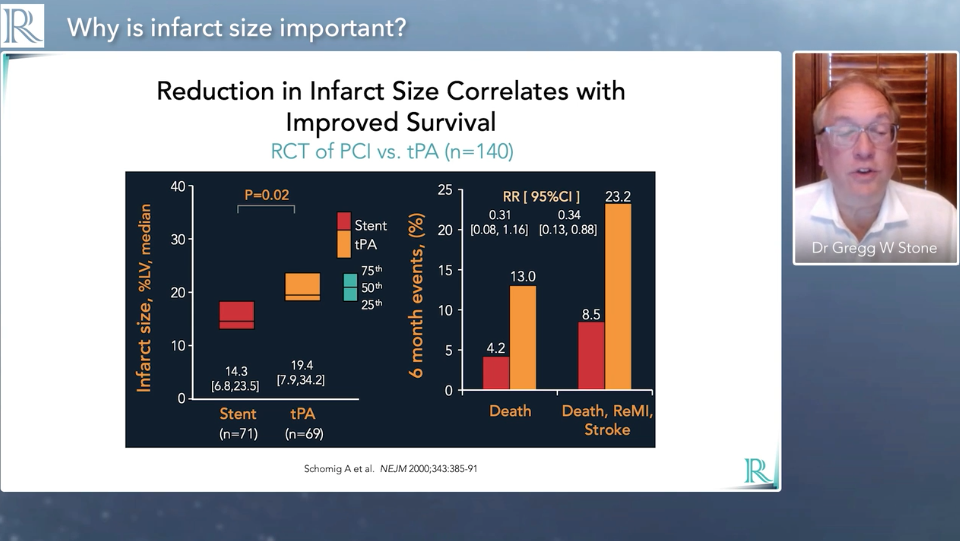 11m 26sPart 1 | Session 4 Infarct Size and Clinical Outcomes Robert Kloner, Gregg Stone
11m 26sPart 1 | Session 4 Infarct Size and Clinical Outcomes Robert Kloner, Gregg Stone
Overview
Despite advances in reperfusion with primary stenting, progress in STEMI outcomes has stalled over the past 20 years. With 90% of coronary blood flow in the capillaries, the answer might be in the microvasculature. TherOx SSO2 Therapy is the first FDA approved therapy shown to significantly reduce the infarct size in STEMI patients.
During this series of webinars on Supersaturated Oxygen (SSO2) Therapy, our faculty of renowned international experts will discuss and dissect the mechanisms and data around this promising new therapy for STEMI patients.

Key Objectives
- Understand how SSO2 Therapy works
- Hear about trends in STEMI treatment
- Explore the role of microvascular obstruction and infarct size in outcomes
- Understand the science behind SSO2 Therapy
Target Audience
This series is designed for the entire cardiology community:
- Interventional Cardiologists
- Cardiologists
- Clinical Fellows and Trainees
More from this programme
Part 1
Supersaturated Oxygen Therapy (SSO2): The Next Frontier in STEMI Treatment
Part 2
SSO2 Therapy in STEMI to Reduce Infarct Size: A Conversation with Global Thought Leaders
Part 3
Infarct Size, Microvascular Obstruction and Outcomes in STEMI: An Expert Panel Discussion
Part 4
Transforming STEMI Care: Bridging Interventional and Heart Failure Cardiology to Improve Patient Outcomes
This engaging session features the collaborative efforts of interventional and heart failure cardiologists in revolutionizing the management of ST-Elevation Myocardial Infarction (STEMI) and its impact on heart failure. Through a dynamic fireside chat format, our esteemed panelists will explore groundbreaking approaches and advancements that are reshaping STEMI care.
Faculty Biographies
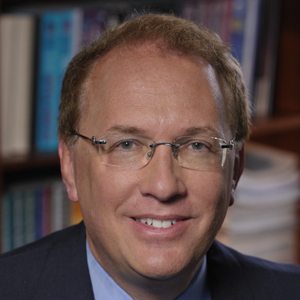
Gregg Stone
Professor of Medicine, Professor of Population Health Sciences and Policy, and Director of Academic Affairs
Dr Stone is a leading expert in interventional cardiology and is one of the most widely cited researchers in science. He has served as the principal investigator for approximately 130 national and international multicentre randomised trials, has delivered thousands of lectures internationally, and has authored more than 2,500 book chapters, manuscripts and abstracts published in peer-reviewed literature.
Dr Stone is the Director of Academic Affairs for Mount Sinai Heart Health System, and Professor of Medicine and Professor of Population Health Sciences and Policy at The Zena and Michael A Wiener Cardiovascular Institute, Icahn School of Medicine, at Mount Sinai, New York.
Dr Gregg Stone is an editorial board member of Interventional Cardiology: Reviews, Research, Resources (ICR3).
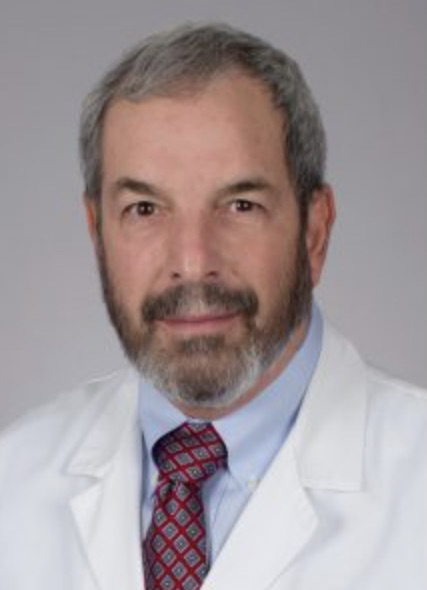
Robert Kloner
Robert Kloner is Chief Science Officer and Scientific Director of Cardiovascular Research at Huntington Medical Research Institutes (HMRI). He serves as Professor of Medicine (Clinical Scholar) at Keck School of Medicine at the University of Southern California. He has run nationally and internationally known cardiovascular research programs for over 40 years, training dozens of medical scientists and collaborating with scores of physician-scientists, numerous research institutions, and medical industries worldwide. During his administrative tenure at both Wayne State University and The Heart Institute of Good Samaritan Hospital, he built successful research facilities from the ground-up, creating centers recognized for scientific excellence and innovation.
Dr Kloner has made major contributions to the understanding and treatment of heart disease, published extensively in medical literature, receiving funding from the National Institutes of Health …





